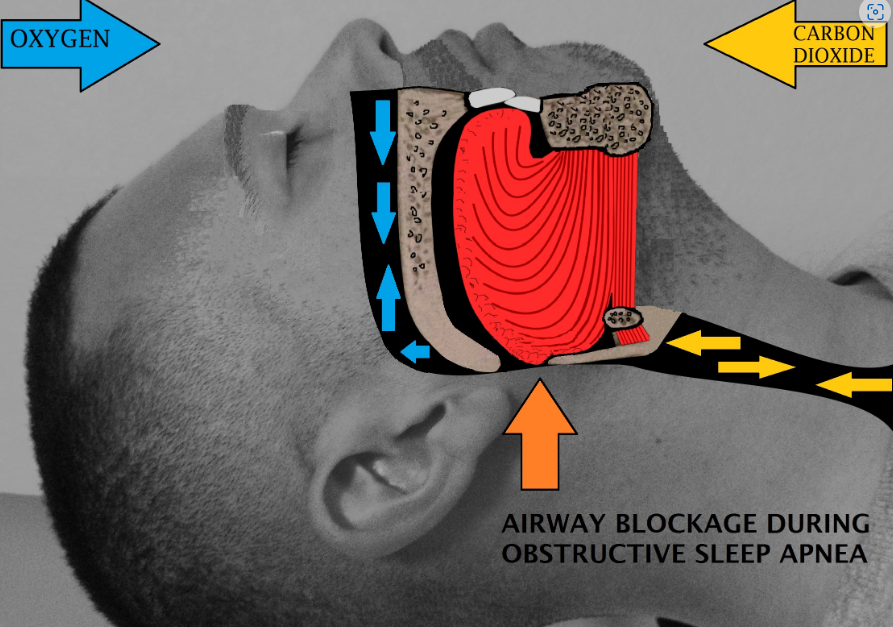

Sleep apnea is a common disorder but fatal if left unchecked for extended periods. In sleep apnea, your breathing stops and starts, due to which less oxygen is supplied to the body, and the patient awakens due to shortness of breath. There are two types of sleep apnea, obstructive sleep apnea and central sleep apnea. One can develop obstructive sleep apnea (OSA) due to the blockage of the air pathway to the lungs by over-relaxed or overdeveloped muscles or fat tissue buildup. Central sleep apnea (CSA) happens not because of blockage in the airways but because of the brain's inability to control breathing. This blog will give you a deeper insight into the causes of sleep apnea and its risk factors.
Sleep apnea causes shortness of oxygen supply to the body while sleeping, which causes you to wake up multiple times throughout the night. It prevents you from having a full night's sleep, leaving you tired during the day.
Prolonged exposure to sleep apnea can also cause other diseases like high blood pressure, depression, weakness, immunity system, high sugar level, asthma, etc. Not only does it affects your body but also your mind.
To treat sleep apnea, you need to diagnose it properly. Your healthcare provider will make an evaluation based on your symptoms and sleep history, which is known as a sleep study.
After that, you will be subjected to a sleep disorder centre, where you will be evaluated further if seen fit by a sleep specialist. There are two tests: nocturnal polysomnography and home test. Their heart, lungs, brain activity, oxygen levels, and moments are monitored.
CPAP machines are used widely for treating sleep apnea by supplying positive air pressure to the airways. CPAP therapy helps patients to have a healthy sleep. Sleep apnea patients can also sleep in a sleep laboratory for a secure diagnosis.
There are two types of sleep apnea: OSA and CSA. Obstructive sleep apnea occurs due to the blockage in the air pathway to the lungs by any means like over relaxed tongue, tonsils, uvula etc.
CSA occurs due to breathing patterns controlled by the brain and has nothing to do with blockage in the air pathway. The causes of sleep apnea depends on the individual's health as well. For instance, it is more likely to be found in people with asthma or heart disease.
OSA happens due to over-relaxed muscles in the mouth and throat, such as the tongue, tonsils, uvula, or the muscle in the back of the throat. When these muscles over-relax to a point, it creates a blockage in the air passage to the lungs.
Due to this lack of oxygen being supplied to the body, the brain senses it and wakes you up mildly so that oxygen can be supplied during sleep.
This is a severe form of sleep apnea compared to OSA. Here your brain sometimes fails to end signals to breathing muscles. No effort in breathing can cause trouble in staying asleep or going to sleep. Usually, mild sleep apnea happens due to nasal congestion. However, CSA can be the harbinger of serious complications related to brain functioning.
There are numerous risk factors involved in developing obstructive sleep apnea. Your lifestyle could be the biggest reason to blame due to unhealthy habits. Below are some of the factors that involve a higher risk of sleep apnea:
Central sleep apnea syndromes occur due to the inactivity of the brain, which causes an individual to stop breathing while sleeping. Some of the factors that may contribute towards having an increased risk of CSA are:
Untreated sleep apnea can be life-threatening since it's related to breathing. Different medicines are used for different circumstances when it comes to CSA. CSA has a wide variety of symptoms that require additional measures for treatment. No single medication is effective in all conditions in this case, so different medicines are aimed at improving CSA, like acetazolamide, theophylline, and sedative-hypnotic agents. Other than medicines, Continuous Positive Airway Pressure (CPAP) therapy is used to treat it.
Sleep apnea is a better safe than sorry case. There are numerous factors that can increase an individual's chances of developing sleep apnea. Having an early diagnosis of the condition can save your life. Symptoms don't get severe until it's been there for an extended period. Treatment of sleep apnea is easy if detected at an early stage
Leave a comment